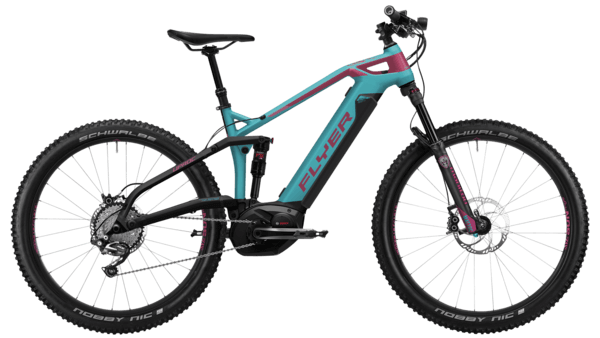
-
 Afrikaans
Afrikaans -
 Albanian
Albanian -
 Amharic
Amharic -
 Arabic
Arabic -
 Armenian
Armenian -
 Azerbaijani
Azerbaijani -
 Basque
Basque -
 Belarusian
Belarusian -
 Bengali
Bengali -
 Bosnian
Bosnian -
 Bulgarian
Bulgarian -
 Catalan
Catalan -
 Cebuano
Cebuano -
 Corsican
Corsican -
 Croatian
Croatian -
 Czech
Czech -
 Danish
Danish -
 Dutch
Dutch -
 English
English -
 Esperanto
Esperanto -
 Estonian
Estonian -
 Finnish
Finnish -
 French
French -
 Frisian
Frisian -
 Galician
Galician -
 Georgian
Georgian -
 German
German -
 Greek
Greek -
 Gujarati
Gujarati -
 Haitian Creole
Haitian Creole -
 hausa
hausa -
 hawaiian
hawaiian -
 Hebrew
Hebrew -
 Hindi
Hindi -
 Miao
Miao -
 Hungarian
Hungarian -
 Icelandic
Icelandic -
 igbo
igbo -
 Indonesian
Indonesian -
 irish
irish -
 Italian
Italian -
 Japanese
Japanese -
 Javanese
Javanese -
 Kannada
Kannada -
 kazakh
kazakh -
 Khmer
Khmer -
 Rwandese
Rwandese -
 Korean
Korean -
 Kurdish
Kurdish -
 Kyrgyz
Kyrgyz -
 Lao
Lao -
 Latin
Latin -
 Latvian
Latvian -
 Lithuanian
Lithuanian -
 Luxembourgish
Luxembourgish -
 Macedonian
Macedonian -
 Malgashi
Malgashi -
 Malay
Malay -
 Malayalam
Malayalam -
 Maltese
Maltese -
 Maori
Maori -
 Marathi
Marathi -
 Mongolian
Mongolian -
 Myanmar
Myanmar -
 Nepali
Nepali -
 Norwegian
Norwegian -
 Norwegian
Norwegian -
 Occitan
Occitan -
 Pashto
Pashto -
 Persian
Persian -
 Polish
Polish -
 Portuguese
Portuguese -
 Punjabi
Punjabi -
 Romanian
Romanian -
 Russian
Russian -
 Samoan
Samoan -
 Scottish Gaelic
Scottish Gaelic -
 Serbian
Serbian -
 Sesotho
Sesotho -
 Shona
Shona -
 Sindhi
Sindhi -
 Sinhala
Sinhala -
 Slovak
Slovak -
 Slovenian
Slovenian -
 Somali
Somali -
 Spanish
Spanish -
 Sundanese
Sundanese -
 Swahili
Swahili -
 Swedish
Swedish -
 Tagalog
Tagalog -
 Tajik
Tajik -
 Tamil
Tamil -
 Tatar
Tatar -
 Telugu
Telugu -
 Thai
Thai -
 Turkish
Turkish -
 Turkmen
Turkmen -
 Ukrainian
Ukrainian -
 Urdu
Urdu -
 Uighur
Uighur -
 Uzbek
Uzbek -
 Vietnamese
Vietnamese -
 Welsh
Welsh -
 Bantu
Bantu -
 Yiddish
Yiddish -
 Yoruba
Yoruba -
 Zulu
Zulu
Different Methods of Thread Rolling in Manufacturing Processes
Types of Thread Rolling Factory
Thread rolling is a manufacturing process widely used in the production of threaded fasteners, such as screws and bolts. This method is favored for its ability to create high-strength threads with superior dimensional accuracy and surface finish. In this article, we will explore the different types of thread rolling factories, touching on their specific capabilities, techniques, and technological advancements.
1. Cold Thread Rolling Factories
Cold thread rolling is the most common type of thread rolling process. In a cold thread rolling factory, metallic bars or rods are subjected to high-pressure rolls that deform the material to create threads. This process is typically performed at room temperature, which helps in retaining the material's strength and hardness. Cold rolling factories often utilize machines such as flat die and cylindrical die rolling machines. These machines are capable of producing both external and internal threads, catering to a wide range of applications in automotive, aerospace, and construction industries.
2. Hot Thread Rolling Factories
Hot thread rolling factories operate differently from their cold counterparts. In this process, materials are heated to a high temperature before rolling, making them more malleable. This method is advantageous for producing larger diameter threads or when working with tough materials that may not yield well in cold rolling. Hot rolling allows for the production of longer, more complex thread forms that can be difficult to achieve through cold methods. Factories utilizing hot rolling techniques often have specially designed furnaces and rolling mills to accommodate the heat treatment process.
3. Precision Thread Rolling Factories
types of thread rolling factory

Precision thread rolling factories focus specifically on producing high-precision threaded components that meet stringent specifications. These factories typically employ advanced CNC (Computer Numerical Control) machines that allow for fine-tuning of rolling parameters. Precision thread roll machines can achieve tight tolerances and intricate thread profiles, making them ideal for specialized applications in industries like medical devices, electronics, and precision engineering. The use of automation and real-time monitoring systems further enhances the quality and reliability of the products manufactured in these facilities.
4. Multi-Station Thread Rolling Factories
Multi-station thread rolling factories are designed to optimize efficiency and production rates. In these setups, multiple rolling stations are arranged in sequence, allowing components to go through various stages of threading in a streamlined manner. By adopting a multi-station approach, these factories can significantly reduce cycle times and increase throughput. Automation and robotics play a key role in these factories, allowing for rapid loading and unloading of workpieces, thus minimizing manual intervention and potential errors.
5. Hybrid Thread Rolling Factories
Hybrid thread rolling factories combine elements of both cold and hot rolling processes to achieve specific product requirements. This type of facility is particularly useful for manufacturers looking to capitalize on the strengths of both methods. For instance, a hybrid factory may employ cold rolling for initial threading and then apply a heat treatment process to enhance the final product's mechanical properties. This flexibility enables manufacturers to adapt to diverse customer needs and market demands swiftly.
Conclusion
As the demand for high-quality threaded fasteners grows across various industries, so do the capabilities and technologies employed in thread rolling factories. From cold and hot rolling to precision and hybrid methods, each type of factory plays a pivotal role in ensuring that manufacturers can meet their clients' specifications efficiently and effectively. Continual advancements in technology, such as automation and precision engineering, promise further enhancements in production processes, ultimately leading to better products and increased customer satisfaction.
